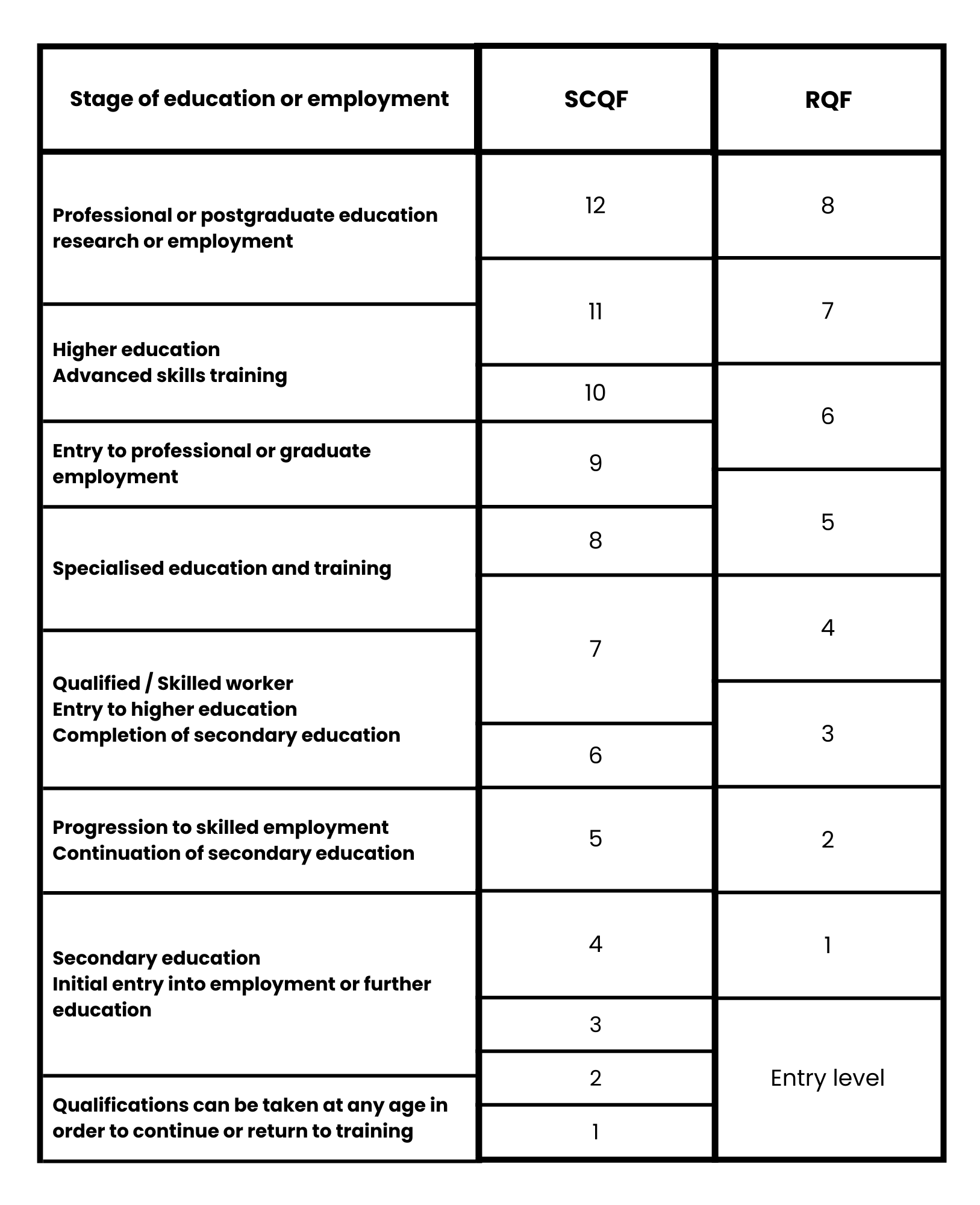If you’re studying a qualification in the UK, you may have heard the acronyms RQF and SCQF, and chances are your qualification will sit on one of these frameworks.
But what do they mean, and how do they affect your education and career prospects?
The Regulated Qualifications Framework (RQF) is used in England and Northern Ireland, while the Scottish Credit and Qualifications Framework (SCQF) applies to Scotland. Both frameworks help learners, employers, and educators understand the level of different qualifications, ensuring consistency, comparability and recognition across industries and education providers.
Qualifications on any of these frameworks can 'cross boundaries' and be used interchangeably in the other jurisdictions.
The Scottish Credit and Qualifications Framework (SCQF) is Scotland’s national framework for recognising and comparing qualifications. It consists of 12 levels, covering everything from school qualifications to postgraduate degrees and vocational training.
For example, the NSA Diploma in Fire Risk Assessment is at level 10 on the SCQF.
The Regulated Qualifications Framework (RQF) is the system used in England, Wales, and Northern Ireland to categorise and compare qualifications. It has 8 levels, which align with different levels of knowledge and skills.
The NSA Diploma in Fire Risk Assessment is at RQF level 6.
Understanding how SCQF and RQF levels align can help you determine the equivalent qualifications across the UK.
As an example, SCQF Level 10 is equivalent to RQF Level 6. These levels include higher education qualifications and advanced skills training. A well-known qualification at SCQF Level 10 is a Bachelor's degree.

Both frameworks help employers and professional bodies assess qualifications. For example:
If you are applying for a job, understanding where your qualification sits on the framework can help demonstrate its value to employers.
Professional bodies use framework levels to recognise prior learning when awarding memberships or exemptions. In fire safety, bodies such as the IFE and IFSM recognise that the NSA Diploma in Fire Risk Assessment meets the academic requirements for their 'Member' grade.
Universities also often use these frameworks for admissions to ensure that qualifications meet entry requirements.
Yes, SCQF qualifications can be used in England, just as RQF qualifications are valid in Scotland. As they are both comparable, they are considered equivalent qualifications at the relevant level.
If you are planning to use an SCQF qualification in England, it is recommended to compare its level with RQF and consult with the relevant institution or employer to ensure acceptance.
See more about how qualifications can cross boundaries on the
SCQF website.Understanding the differences between SCQF and RQF helps learners, professionals, and employers navigate the UK education system. Whether you’re looking for further study, career advancement knowing how your qualification aligns with these frameworks is crucial.


